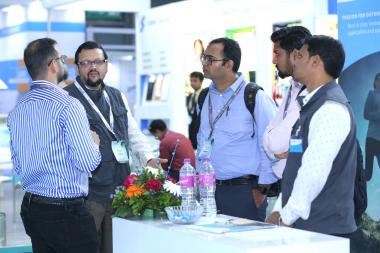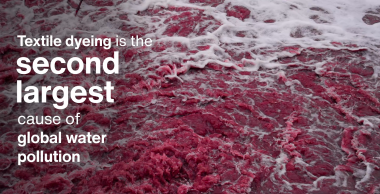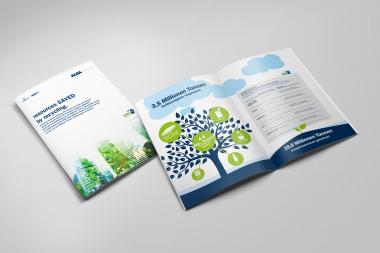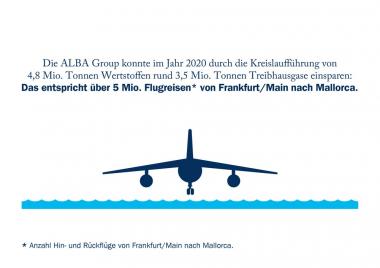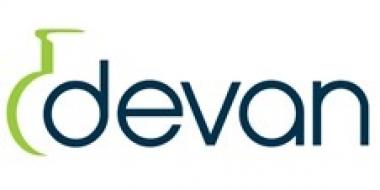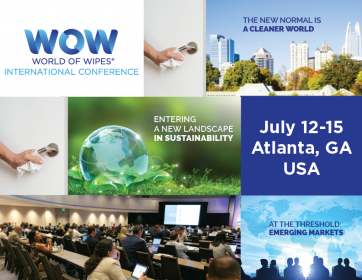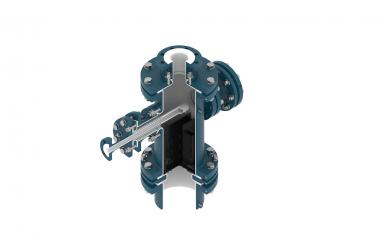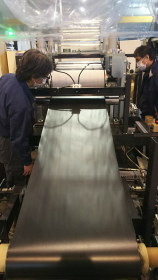Techtextil India: Hybrid exhibition in November
India’s leading trade fair in technical textiles, nonwovens and composites, Techtextil India, is ready to make a comeback through its hybrid edition launch from 25 – 27 November 2021. With a series of live product demonstrations, insightful knowledge sessions and B2B networking opportunities, the multimodal trade fair will provide a strong avenue for technical textile professionals to reimagine their business potential.
After a successful grand edition in 2019, Techtexil India is all set to return for the very first time since the pandemic. The three-day exhibition will be hosted in a hybrid format from 25 – 27 November 2021, Bombay Exhibition Centre, Goregaon which will unite technical textile players from across its varied application areas. Top technical textile brands including JB Ecotex, PARK Nonwoven, Loyal Textiles Lenzing, Mehala, Meera Industries, amongst many others will showcase their latest products at the hybrid fair. Moreover, leading German brands exhibiting at Techtextil India 2021 will be hosted under the German pavilion.
The conjunction between the physical exhibition and the online business matchmaking platform will make way to a wider range of networking. Local and international visitors who are unable to attend the venue will be able to witness the exhibition virtually through the ‘MFI virtual app’ which will host live knowledge sessions and product demonstrations for visitors. The two-day multimodal trade fair allows the visitors to search for specific products like fibers, yarns, nonwovens, machinery, coated textiles with easy-to-use filters further to which they can share their query or connect directly with the respective exhibitors.
At the same time, visitors attending the venue will be welcomed under a well-organised physical exhibition following the government-authorised safety protocols of ‘MFI SafeConnect’. These protocols will enable visitors to engage in secure face-to-face interactions with exhibitors and witness the latest technical textile technologies and innovations in-person.
Alliance with the Government of Tamil Nadu
In a bid to strengthen indigenous production through the state and attract investors, the nodal agency for investment promotion and facilitation for the Government of Tamil Nadu – Guidance has signed up for Techtextil India 2021. Furthermore, technical textile players from Tamil Nadu such as Cyber Textiles India Pvt Ltd, Jayashree Spun Bond, Lenzing Ag India, Liester Technologies, Loyal Textile Mills Ltd, Milltex Engineers Pvt Ltd, Superfil Products Pvt Ltd, Uster Technologies (India) Pvt Ltd have also confirmed their participation for the exhibition.
Announcing a close co-operation with Messe Frankfurt India for the 2021 edition, Ms Pooja Kulkarni, IAS MD & CEO, Guidance Tamil Nadu, stated: “While there are several inherent advantages for the growth of technical textiles in Tamil Nadu specifically, many raw materials used in the production of sanitary products, artificial ligaments, seat belt webbings, airbags are still heavily imported. In this context, the alliance with Techtextil India Forum can help us reduce import dependency and bring investments in R&D, manufacturing, innovation by partnering with global technical textiles companies.”
With 50% of India’s textile mills in Tamil Nadu and complementary clusters of knitting, weaving and medical devices manufacturing in Coimbatore, and Tiruppur, the region provides immense opportunities for Meditech investments. Two petrochemical and refinery units – One in Cuddalore and another in Nagapattinam by CPCL is in the process of being established in Tamil Nadu. These units will enable availability of MMF raw material for the textile industry across the state. Hence, manufacturing in Tamil Nadu can be a win-win arrangement for investors as India provides access to the burgeoning market as well.
International expertise with German pavilion
Techtexil India 2021 edition will feature an exclusive German Pavilion showcasing products and technologies from top German manufacturers, including Autefa Solution Germany GmbH, DILO Systems GmbH, Emtec Electronic GmbH, Georg Sahm GmbH & Co, Karl Mayer Verwaltungsgesellschaft mbH, Merz Maschinenfabrik GmbH and Oerlikon Barmag Zweigniederlassung der Oerlikon Textile GmbH & Co.
Messe Frankfurt (HK) Ltd


